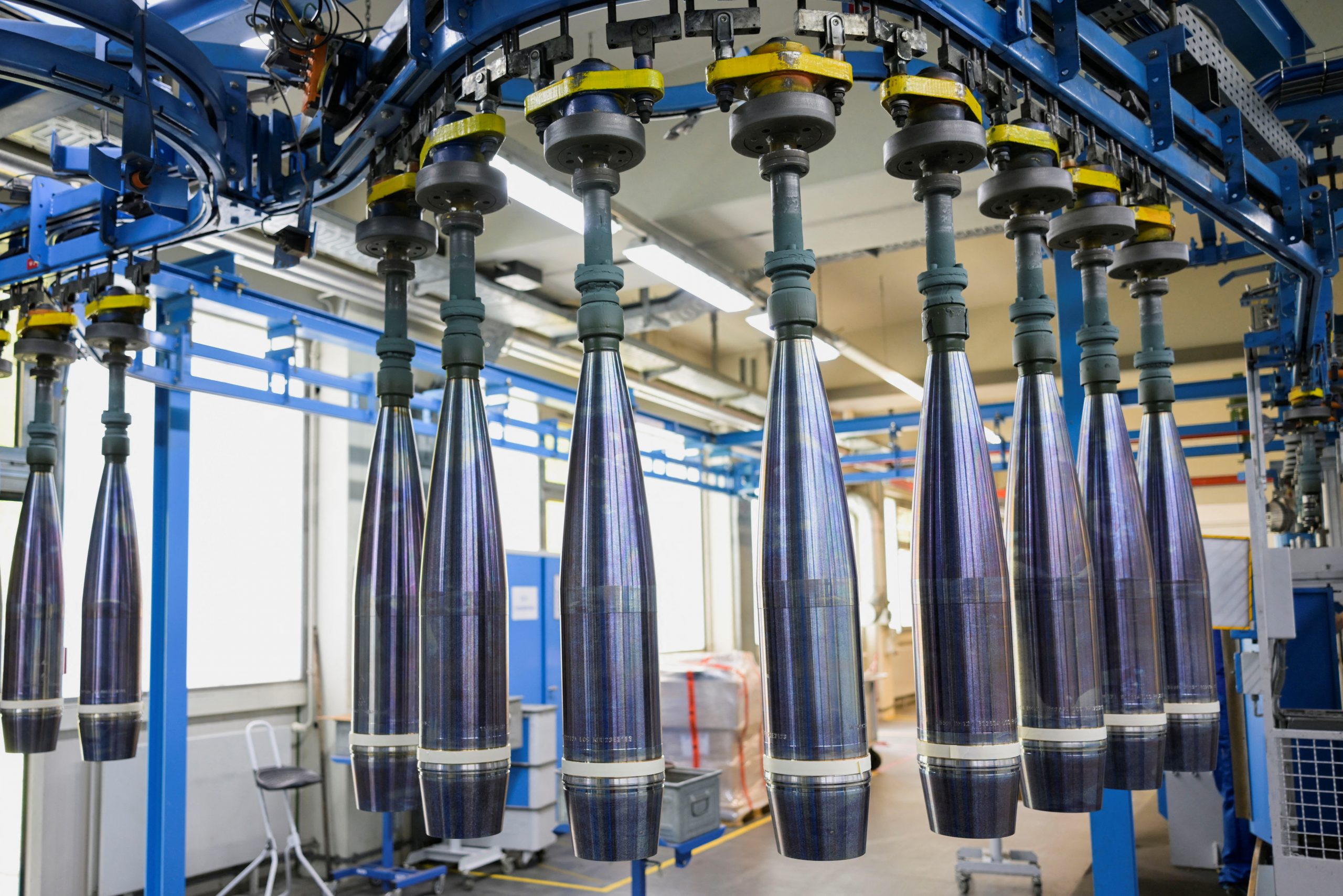Germany’s largest defense contractor Rheinmetall will double its planned ammunition production capacity at its new Ukrainian facility to 300,000 artillery shells annually, CEO Armin Papperger announced during the company’s Q2 2025 conference call on 7 August.
The expanded capacity represents a significant increase from the original target of 150,000 shells per year. “Ukrainian officials want to double the planned production capacities,” Papperger said in response to questions during the conference call, according to German Aid to Ukraine.
Production at the Ukrainian plant is scheduled to begin in 2026, following what Papperger described as a typical one to two-year ramp-up period to reach full capacity. The facility will manufacture 155mm artillery ammunition, addressing Ukraine’s heavy reliance on shell deliveries from partner nations.
However, further expansion beyond 300,000 shells appears unlikely in the near term due to financial constraints. Papperger indicated that the Ukrainian government “simply doesn’t have the money” for higher production figures.
The project has faced delays attributed to bureaucratic hurdles. Papperger expressed frustration with the pace of progress, saying that “bureaucracy in Ukraine is unfortunately very, very high.” He compared the Ukrainian project to a similar facility in Unterlüß, Germany, noting that construction began almost simultaneously at both locations, but the German plant is now completed while the Ukrainian facility remains unfinished.
This marks the second time Papperger has publicly criticized Ukrainian administrative processes. He previously raised similar concerns in a February 2025 interview with Deutsche Welle on the sidelines of the Munich Security Conference.
A representative from another German defense company, speaking anonymously to German Aid to Ukraine, confirmed experiencing bureaucratic challenges in Ukraine but could not verify whether establishing operations would be easier in Germany, as Papperger has suggested.
Despite these administrative challenges, there are no indications that the factory completion will be significantly delayed. The facility is expected to begin operations as originally announced, with production starting next year.
The expansion will enhance Ukraine’s domestic ammunition production capabilities, reducing dependence on international deliveries for its military operations. Currently, Ukraine relies almost exclusively on shell supplies from allied nations to meet its artillery needs.




